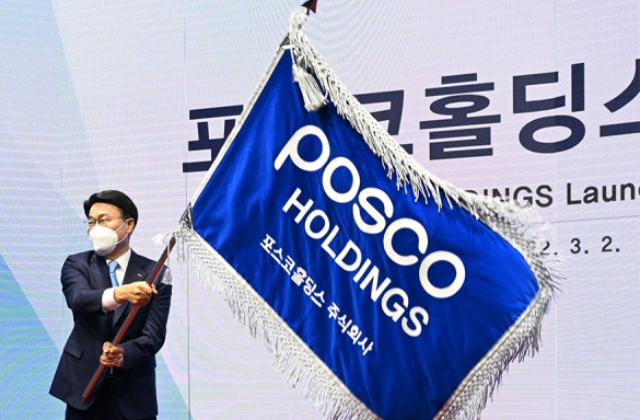POSCO, a South Korean steelmaking giant, is investing $20 billion or around ₩25 trillion in an effort to become the no. 1 EV materials company in the world by the year 2030. The company is also aiming to beat its Chinese rivals by securing a stable supply of central raw materials needed for the production of batteries for electric vehicles.
POSCO Holdings Inc. will attempt to attain its goals through this new investment for its long-term project. As per The Korea Economic Daily, the company will make the investment until 2030 and spread it out on various rechargeable battery projects.
The company’s funds may also be used for the purchase of stakes in battery material companies, mineral mines, and other related facilities around Asia. This is for the company to have its own source of raw materials.
Moreover, the massive investment will also help the company with building its own battery metal supply chain as well as cut down South Korea’s heavy reliance on sourcing materials from Chinese companies and suppliers. This is the first time that POSCO has revealed specific details about its investment plans since its chief executive officer Choi Jeong Woo said last year that they are aiming to be the biggest battery materials player in the world.
“China is sweeping the lithium and other battery materials market. It’s literally war,” POSCO Holding’s senior vice president of secondary batter business, Lee Kyung Sub, said in an interview with KED this week.
Lee, who is also the head of the company’s investment strategy, further said that they will be building a synthetic graphite plant in the United States and will spend between 300 billion won and 400 billion won for this. He also shared POSCO’s plans to invest in a nickel mine in Indonesia and construct a new nickel plant in Brazil.
“This is not a wild dream,” Lee said. “We expect battery materials to lead the Korean economy over the next decade or two just like chips, shipbuilding and chemicals did over the past two decades.”
Meanwhile, Reuters reported that POSCO Holdings also invested $4 billion in a lithium project in Argentina. This comes as it is seeking to tap into the rising demand for rechargeable battery metal.



 Indian Refiners Scale Back Russian Oil Imports as U.S.-India Trade Deal Advances
Indian Refiners Scale Back Russian Oil Imports as U.S.-India Trade Deal Advances  Global Markets Slide as AI, Crypto, and Precious Metals Face Heightened Volatility
Global Markets Slide as AI, Crypto, and Precious Metals Face Heightened Volatility  Asian Markets Surge as Japan Election, Fed Rate Cut Bets, and Tech Rally Lift Global Sentiment
Asian Markets Surge as Japan Election, Fed Rate Cut Bets, and Tech Rally Lift Global Sentiment  Toyota’s Surprise CEO Change Signals Strategic Shift Amid Global Auto Turmoil
Toyota’s Surprise CEO Change Signals Strategic Shift Amid Global Auto Turmoil  Washington Post Publisher Will Lewis Steps Down After Layoffs
Washington Post Publisher Will Lewis Steps Down After Layoffs  Asian Stocks Slip as Tech Rout Deepens, Japan Steadies Ahead of Election
Asian Stocks Slip as Tech Rout Deepens, Japan Steadies Ahead of Election  Gold and Silver Prices Rebound After Volatile Week Triggered by Fed Nomination
Gold and Silver Prices Rebound After Volatile Week Triggered by Fed Nomination  Sony Q3 Profit Jumps on Gaming and Image Sensors, Full-Year Outlook Raised
Sony Q3 Profit Jumps on Gaming and Image Sensors, Full-Year Outlook Raised  TrumpRx Website Launches to Offer Discounted Prescription Drugs for Cash-Paying Americans
TrumpRx Website Launches to Offer Discounted Prescription Drugs for Cash-Paying Americans  Japan Economy Poised for Q4 2025 Growth as Investment and Consumption Hold Firm
Japan Economy Poised for Q4 2025 Growth as Investment and Consumption Hold Firm  Nvidia CEO Jensen Huang Says AI Investment Boom Is Just Beginning as NVDA Shares Surge
Nvidia CEO Jensen Huang Says AI Investment Boom Is Just Beginning as NVDA Shares Surge  Hims & Hers Halts Compounded Semaglutide Pill After FDA Warning
Hims & Hers Halts Compounded Semaglutide Pill After FDA Warning  Prudential Financial Reports Higher Q4 Profit on Strong Underwriting and Investment Gains
Prudential Financial Reports Higher Q4 Profit on Strong Underwriting and Investment Gains 































